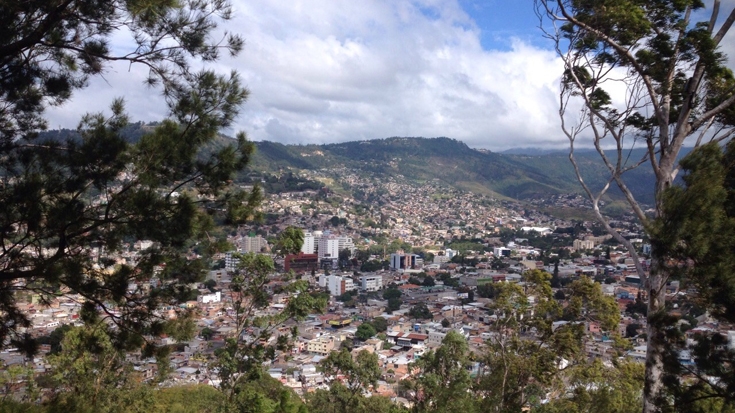Challenge
The Central District of Tegucigalpa Municipality (AMDC), the city’s governing authority, sought to access financing from the International Finance Corporation for basic infrastructure services. However, because the central government did not provide a sovereign guarantee, the city needed to demonstrate that it had the institutional capacity and borrowing track record to qualify. This required a satisfactory public financial management (PFM) system.
Solution
To support the government of Honduras’ decentralization strategy and build on synergies with the IFC, the World Bank undertook an assessment of AMDC’s PFM framework and practices, through a Public Expenditure and Financial Accountability (PEFA[1]) exercise. The PEFA process provided the foundation for AMDC to develop and implement a balanced budget and to provide the municipality's partners a reference to evaluate the evolution of AMDC’s PFM performance over time.
A joint AMDC-donor supervision and monitoring team was responsible for approving the work plan and the assessment results. A technical team led by World Bank staff and consultants was responsible for the assessment of the municipality’s performance with regard to the PEFA indicators. Validation workshops addressed the preliminary assessments of each indicator and provided an initial roadmap for PFM reforms.
Results
The PEFA assessment process provided AMDC with a sound diagnostic of its PFM system, strengthening their ability to access finance for infrastructure investments. It also improved the transparency of the PFM system and renewed confidence in the AMDC’s financial management. Following the assessment, three local banks requested an early cancellation of the IFC’s Risk Sharing Facility in order to provide direct loans without a sovereign guarantee to AMDC.
The assessment fostered dialogue between the AMDC and the donors and central authorities and provided a foundation for the central government’s fiscal decentralization effort. It also contributed to defining the standards for monitoring and control of the indebtedness of municipalities and other sub-national entities.
Bank Group Contribution
The World Bank-executed Public Private Infrastructure Advisory Facility (PPIAF) Trust Fund provided $84,000 through its Sub-National Technical Assistance (SNTA) program. This program helps sub-national entities improve their creditworthiness and their access to market-based financing.
Partners
The main development partners working in public financial management in Honduras contributed to the PEFA Report’s quality review process. The PEFA follow-up Committee within the Aid Effectiveness Technical Roundtable (formed by the World Bank, USAID, European Commission and Inter-American Development Bank) provided consolidated comments to the preliminary report, which were considered in the final version. The final report was presented as part of the Aid Effectiveness Technical Roundtable. The report was well received by the development partners as a valuable tool to explore further collaboration with the AMDC in supporting their PFM reform agenda.
Moving Forward
Building on the achievement of the PEFA assessment and the ability of the AMDC to access finance without sovereign guarantees, the IFC is exploring the development of a public-private partnership project to decentralize potable water and waste water management services in Tegucigalpa. Currently, these are managed by the municipality’s Water Utility Agency, but AMDC is contemplating a joint venture with a private operator, an effort that might later involve the IFC as an advisor and co-financier. Development partners will almost certainly take into consideration the results of the PEFA assessment when making decisions on potential financing for AMDC.
Beneficiaries
"We recognize the importance of an adequate public financial management system as a mean to support policy and reach development objectives that endorse fiscal discipline, the strategic allocation of resources and the efficient delivery of services. In this sense, the PEFA Report has been a very important document which has helped us to identify key areas to be strengthened within the framework of the reform" – Mario Zerón, Director, Finance and Administration Directorate, AMDC.
[1] The PEFA Performance Measurement Framework is an internationally accepted, integrated benchmarking tool that uses a set of high-level indicators to assess PFM performance against international standards and good practices. http://www.pefa.org
